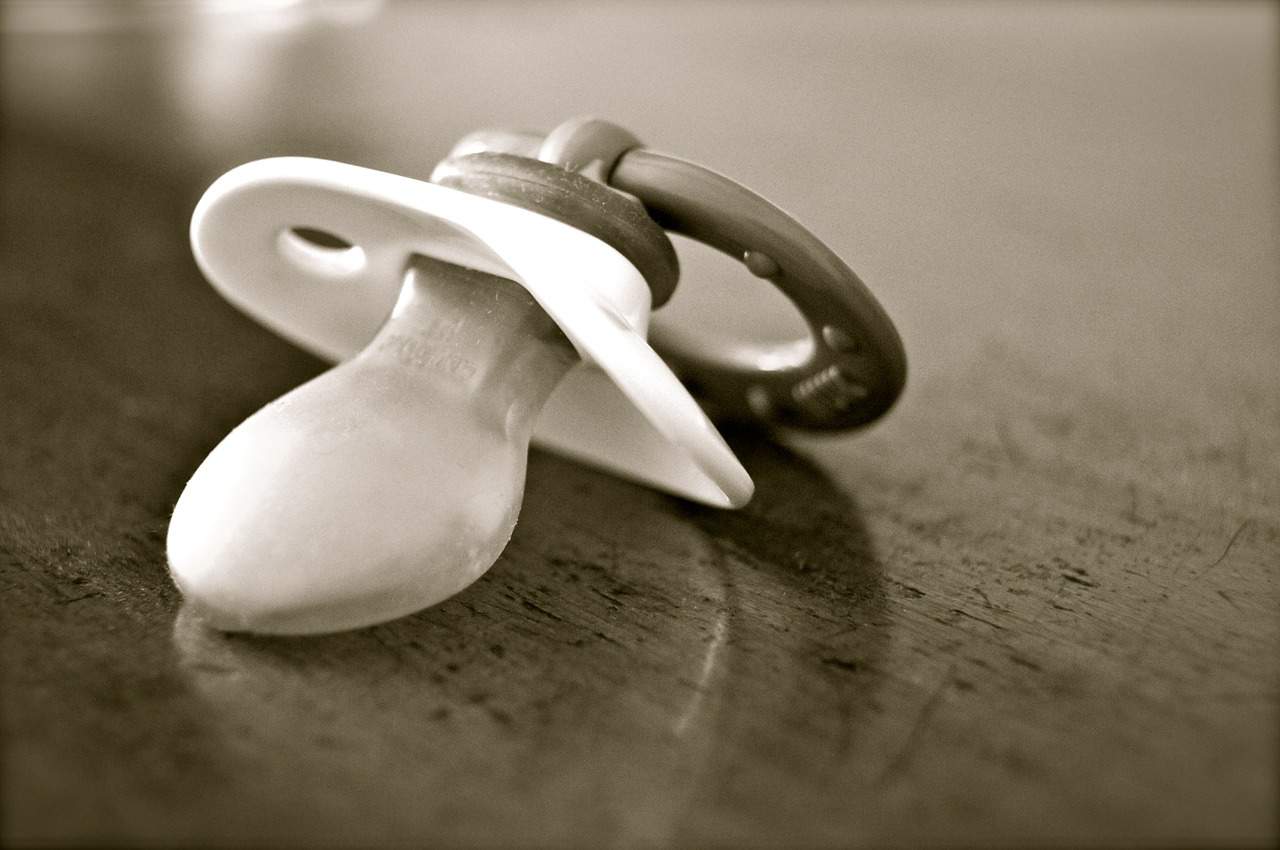Pacifiers are a popular method to help babies stop crying, but the risks to developing teeth is something that must be considered when giving pacifiers to children. Babies and young children are undergoing rapid teeth development, and are vulnerable to damage from anything entering their mouth. When the teeth erupt from the gums and begin to shift and fit into the mouth, you should begin taking precautions with pacifier use to help protect your child’s developing teeth.
Pacifier use beyond a certain age and sustained daily use can contribute to potential oral health problems. Discouraging reliance on a pacifier can be difficult at first, but little by little weaning your child from the device will help promote positive long term oral health. Here are potential problems from sustained pacifier use and some tips for preventing tooth damage in children from pacifier use.
Potential Oral Health Problems:
- Overjets and crossbites. These malocclusions are a common result of the constant sucking on pacifiers. Posterior crossbites occur when the upper back teeth are tucked into the lower back teeth. Overjets occur when the upper teeth project beyond the lower teeth.
- Reduce the potential for teeth and jaw misalignments. Pacifier use can lead to the development of misalignments in the teeth and jaw that will need to be corrected as the child gets older. Most children will require some form of braces treatment as they enter adolescence, but problems brought on by pacifier use can exacerbate these issues.
Pacifier Solutions:
- Wean your child off a pacifier by age 2. This will prevent damage to your child’s teeth during this crucial development phase. Promoting positive dental health from the emergence of your child’s first teeth is important to long term oral health. Monitor pacifier use and begin to discourage and limit use.
- Remove the pacifier from your child before bed. Do not allow your child to retain the pacifier when they sleep. This will help break them on relying on the pacifier excessively. Limiting pacifier to certain contexts will gradually help your child cease to rely on it.
- Make giving up the pacifier a positive experience. Limiting and ultimately eliminating pacifier use is a positive thing, so work to make the effort positive for your child. Create rewards for your child as they begin to rely on the pacifier less and less.





